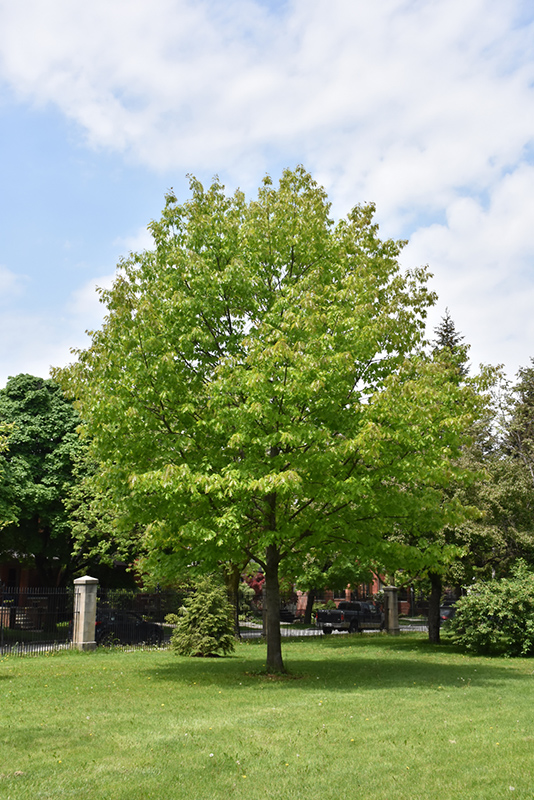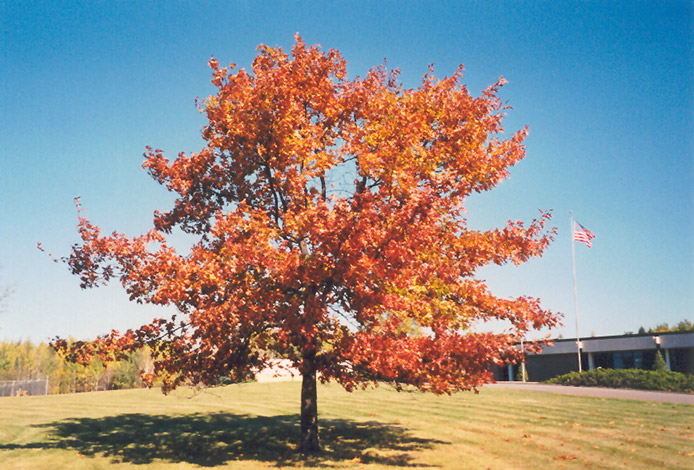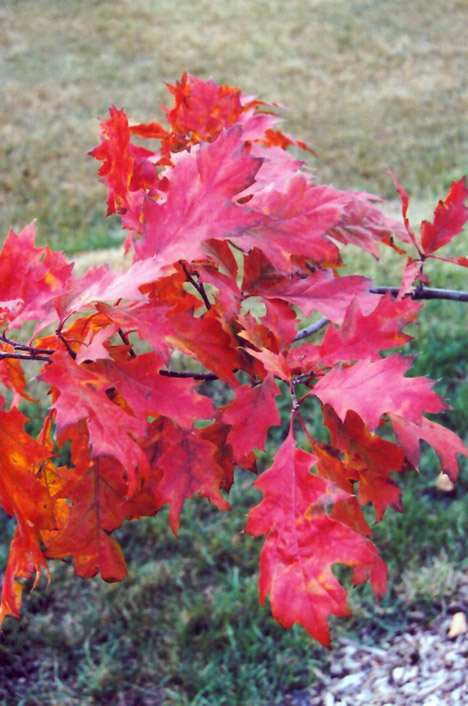Get ready to ignite your excitement and cultivate unforgettable memories
with Wallace's Garden Center Events! We're thrilled to invite you to a world of
enchanting experiences, where every gathering is a celebration of nature, community, and pure fun.
Plant Finder
Height: 70 feet
Spread: 70 feet
Sunlight:
![]()
Hardiness Zone: 3
Other Names: Northern Red Oak
Description:
A beautiful and artistic shade tree with a picturesque loosely pyramidal habit of growth and good red fall color; fast growing for an oak, an extremely tough and adaptable tree, best for larger landscapes; prefers loose, slightly acidic soils
Ornamental Features
Red Oak has dark green deciduous foliage which emerges rose in spring on a tree with a round habit of growth. The spiny lobed leaves turn an outstanding antique red in the fall. However, the fruit can be messy in the landscape and may require occasional clean-up.
Landscape Attributes
Red Oak is a deciduous tree with a more or less rounded form. Its average texture blends into the landscape, but can be balanced by one or two finer or coarser trees or shrubs for an effective composition.
This tree will require occasional maintenance and upkeep, and is best pruned in late winter once the threat of extreme cold has passed. It is a good choice for attracting squirrels to your yard. Gardeners should be aware of the following characteristic(s) that may warrant special consideration;
- Messy
Red Oak is recommended for the following landscape applications;
- Shade
Planting & Growing
Red Oak will grow to be about 70 feet tall at maturity, with a spread of 70 feet. It has a high canopy with a typical clearance of 7 feet from the ground, and should not be planted underneath power lines. As it matures, the lower branches of this tree can be strategically removed to create a high enough canopy to support unobstructed human traffic underneath. It grows at a fast rate, and under ideal conditions can be expected to live to a ripe old age of 300 years or more; think of this as a heritage tree for future generations!
This tree should only be grown in full sunlight. It prefers to grow in average to moist conditions, and shouldn't be allowed to dry out. It is not particular as to soil type, but has a definite preference for acidic soils, and is subject to chlorosis (yellowing) of the foliage in alkaline soils. It is highly tolerant of urban pollution and will even thrive in inner city environments. This species is native to parts of North America.




